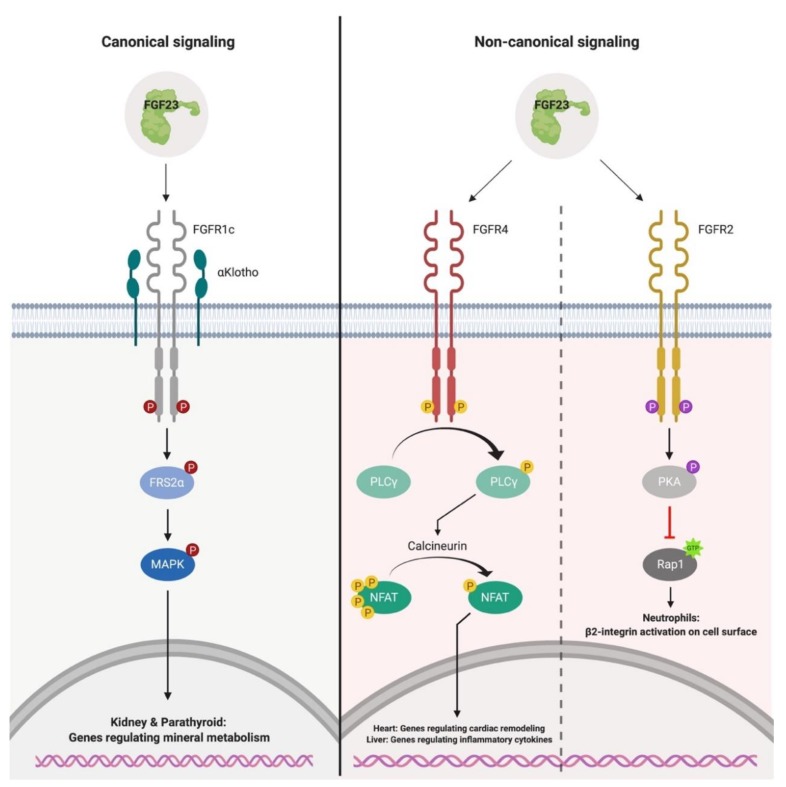Figure 2.
Canonical and non-canonical signaling of FGF23. Canonical FGF23-mediated signaling occurs in an αKlotho-dependent manner in the kidney and parathyroid, leading to the phosphorylation of FRS2α and MAPK. Activation of this signaling pathway results in the downregulation of the sodium-dependent phosphate co-transporters, NaPi-2A and NaPi-2c, on the apical surface of the proximal tubule. In the parathyroid, canonical signaling results in Egr-1 activation and suppression of PTH production. Non-canonical FGF23-mediated signaling occurs in an αKlotho-independent manner in cell types such as myocytes, hepatocytes and neutrophils. In myocytes and hepatocytes, FGF23 binds FGFR4 to activate the PLCγ/calcineurin/NFAT pathway, leading to the induction of gene programs involved in cardiac remodeling and production of pro-inflammatory cytokines. In neutrophils, FGF23 binds FGFR2 which leads to the activation of PKA and subsequent inhibition of the GTPase, Rap1. As a result, β2-integrin deactivation occurs on the cell surface and leads to impaired leukocyte recruitment and host defense. FRS2α, FGF receptor substrate 2α; MAPK, Ras/mitogen-activated protein kinase; Egr-1, early growth-responsive 1; PTH, parathyroid hormone; PLCγ; phospholipase Cγ; NFAT, nuclear factor of activated T-cells; PKA, protein kinase A; Rap1, Ras-proximate-1.

